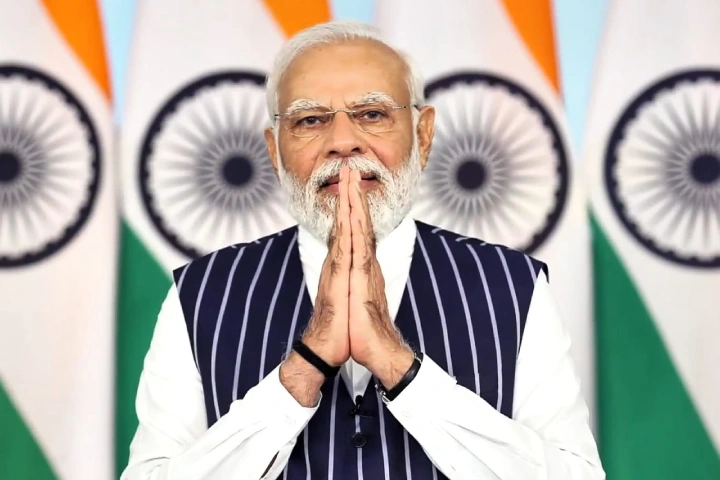

PM Modi addresses G20 agriculture ministers' meeting
Underlining the challenges faced by the Global South, Prime Minister Narendra Modi today urged the agricultural ministers of the G20 nations to deliberate on how to undertake collective action to achieve global food security.
Addressing the G20 ministers meeting in Hyderabad via video today, PM Modi said the Global South had been affected the most due to supply chain disruptions caused by geopolitical tensions and extreme weather conditions triggered by climate change.
“We must find ways to strengthen global fertilizer supply chains. At the same time, adopt agricultural practices for better soil health, crop health and yield. Traditional practices from different parts of the world may inspire us to develop alternatives for regenerative agriculture. We need to empower our farmers with innovation and digital technology. We must also make solutions affordable for small and marginal farmers in the Global South,” PM Modi said.
He said that the responsibilities of an Agriculture Minister are not only limited to handling one sector of the economy but extend towards securing the future of humanity.
Throwing light on India’s contribution to the agricultural sector, the Prime Minister highlighted India’s policy of a fusion of ‘back to basics’ and ‘march to future’ and said that India is promoting Natural Farming as well as Technology-enabled Farming. “Farmers all over India are taking up natural farming now”, the Prime Minister said. He further added that they are not using synthetic fertilizers or pesticides but their focus is on rejuvenating the mother earth, protecting soil health, producing ‘per drop, more crop’, and promoting organic fertilizers and pest management solutions.
At the same time, the Prime Minister continued, our farmers are proactively using technology to boost productivity and gave the example of generating and using solar power on their farms, the use of Soil Health Cards to optimize crop selection, and drones to spray nutrients and monitor their crops. PM Modi expressed the belief that this ‘fusion approach’ is the best way to address several issues in agriculture.
International Year of Millets
The Prime Minister noted that the year 2023 is being celebrated as the International Year of Millets and said that the dignitaries will find a reflection of this on their plates in Hyderabad as many dishes are prepared based on millets, or Shri Anna.
Modi informed that these superfoods are not only healthy to consume but also help in raising the incomes of farmers as the crop requires less water and fertilizer. Highlighting the history of millets, the Prime Minister informed that they have been cultivated for thousands of years but due to the influence of markets and marketing, the value of traditionally grown food crops was lost.
“Let us embrace Shri Anna Millets as the food of our choice”, the Prime Minister remarked as he pointed out that India is developing an Institute of Millets Research as a Centre of Excellence for sharing best practices, research and technologies in millets.
Concluding the address, the Prime Minister said, “India’s G20 priorities in agriculture focus on healing our ‘One Earth’, creating harmony within our ‘One Family’ and giving hope for a bright ‘One Future’”.
Over 200 delegates from G20 member countries, invited countries and International Organizations are participating in the three-day Agriculture Working Group Ministerial Meeting of the G20 in Hyderabad.
Israel Defence Forces Spokesperson Brigadier General Effie Defrin on Thursday said that Iran has expressed…
India's Hindustan Aeronautics Limited (HAL) and French engine manufacturer, Safran Aircraft Engines, signed an agreement…
India has emerged as a country with the third-largest growth in power generation capacity globally…
Prime Minister Narendra Modi hailed Indian chess grandmaster Divya Deshmukh for defeating world number one…
The family of detained Baloch leader Mahrang Baloch has accused prison authorities at Quetta's Hudda…
The QS World University 2026 Rankings bring great news for our education sector, as the…